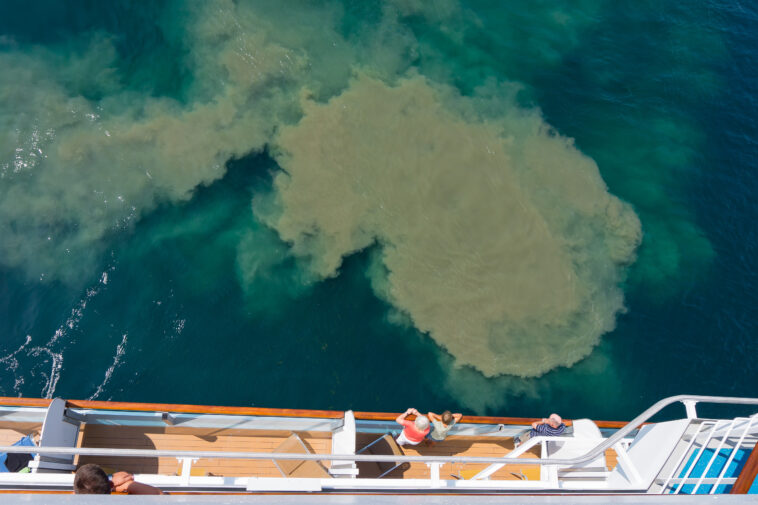The federal government is planning to crack down on the dumping of acidic washwater into the ocean by the cruise ship and marine transportation industry, and will launch talks with industry within weeks.
The move comes as the last of the season’s cruise ships steam south from B.C. this week. The hundreds of ships leave welcome – and much-needed – money in their wake, but also controversy over their environmental harms.
Local governments and environmentalists are calling for urgent action to stop dumping waste from “scrubbers,” federally-required cleaning systems for exhaust gas that reduce sulphur air pollution from burning heavy oil as fuel.
Cruise and cargo ships dump tens of millions of tonnes of concentrated acidic sulphates, metals, and other toxins directly into B.C. coastal waters each year, says the Union of B.C. Municipalities, the organization representing the province’s local governments. The union says the toxic waste harms commercial and recreational fishing and harvesting, and local tourism.
The union passed a resolution in September asking for stronger environmental protections from the B.C. and federal government, including stopping scrubber dumping and requiring the use of cleaner fuels.
“The Government of Canada recognizes that scrubber washwater discharges are a concern,” said Transport Canada in an email response to inquiries from West Coast Now.
The statement said Canada is committed, along with the International Maritime Organization, “to evaluate and develop harmonized rules and guidance on the discharge of scrubber washwater in the aquatic environment.”
“Engagement with industry and interested partners … is set to begin in the coming weeks. The work on development and implementation of permanent measures will follow,” said the statement.
Scrubbers are a major source of carcinogens and other toxins in oceans, said a recent international science report commissioned by Swedish government agencies. “Scrubbers account for disproportionately large emissions of hazardous and acidifying substances into the marine environment,” said one of the researchers.
The U.S. already has stronger controls on ship pollution than Canada does, noted Stand Earth, an environmental organization which released a scathing report last year that said “the waters off of B.C. have become the cruise industry’s toilet bowl.”
Last April the federal government announced new voluntary policies guiding cruise ship waste water discharge, including “greywater” from sinks, showers, and dish and laundry cleaning, and “blackwater” from toilets. The measures include prohibited discharging waste near shore “where possible,” and better wastewater treatment.
At the time, the government said it “plans to make these changes permanent through regulations.”
But there is no word yet from the federal government on how long action to clean up scrubbers will take, after the planned consultation with industry.
Meanwhile, B.C.’s tourism industry is celebrating the economic boost from cruise ships.
The Port of Prince Rupert said its cruise ship season was its busiest in more than a decade, with 40,998 passengers, and $3.5 million in direct consumer spending.
“We are greatly encouraged,” said Shaun Stevenson, President and CEO of the Prince Rupert Port Authority, in a statement. “Rupert is uniquely positioned within the Alaska cruise theatre with immense potential for growth, particularly in regard to developing new opportunities for Indigenous-led tourism and eco-tourism in our region.”
This season Victoria had 329 cruise ship visits, with 715,000 passengers, reported the Greater Victoria Harbour Authority.
Tourism industry associations say Canada’s cruise industry “generates $4.3 billion in total output and supports 30,000 jobs across Canada, including motor coach, tour operators, attractions, food and beverage suppliers, hotels, retailers, taxis, visitor destinations, port workers, and maintenance contractors.”







4 Comments